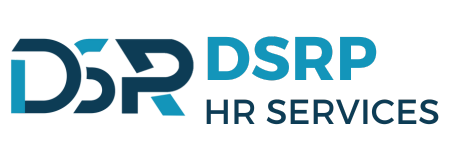HR Audit
- Home
- HR Audit
What is an HR Audit?
The primary purpose of an HR audit is to identify strengths and weaknesses within the HR function and make recommendations for improvement. Overall, DSRP Human resource audit provides valuable insights into the effectiveness of your organization's HR practices and helps ensure that your HR function is aligned with your business objectives.
Here's how the DSRP HR audit can help you:
1. Identifying Areas for Improvement: An HR audit helps identify areas within the HR function that may need improvement, such as outdated policies or inefficient processes.
2. Ensuring Legal Compliance: By examining HR practices against relevant laws and regulations, Human resource audit ensures that your organization remains compliant with legal requirements, reducing the risk of legal penalties or lawsuits.
3. Enhancing Efficiency: By evaluating HR audit processes and procedures, an HR audit can identify inefficiencies and streamline processes to improve overall efficiency and productivity within the organization.
4. Improving Employee Satisfaction: Through employee surveys and feedback, a Human Resource audit can identify issues affecting employee satisfaction and morale, allowing you to address these concerns and create a more positive work environment.
5. Optimizing Resource Allocation: An HR audit helps identify areas where resources are being underutilized or misallocated, allowing you to reallocate resources more effectively to meet organizational goals.
6. Enhancing Decision-Making: By providing detailed insights into the current state of the HR function, an HR audit equips management with valuable data to make informed decisions about resource allocation, strategic planning, and organizational development.
7. Building Trust and Credibility: Conducting regular HR audits demonstrates a commitment to transparency, accountability, and continuous improvement. This fosters trust among employees, stakeholders, and regulatory bodies, enhancing the organization's credibility and reputation.
8. Preparing for Change: In today's dynamic business environment, organizations must be agile and adaptive to change. An HR audit helps identify areas where your HR function may need to evolve to meet changing business needs, technological advancements, or market trends.
When do you need an HR audit?
Overall, human resources audits should be conducted regularly as part of proactive HR management practices, as well as in response to specific events or circumstances where assessing HR practices and compliance is particularly beneficial. By conducting HR audits by DSRP strategically and regularly, organizations can ensure legal compliance, mitigate risks, enhance HR effectiveness, and support organizational goals and objectives.
Which types of human resources audits does DSRP conduct?
1. Compliance Audits include assessing adherence to employment laws, labor regulations, anti-discrimination laws, wage and hour laws, and occupational health and safety standards.
2. HR Audit Process evaluates the efficiency and effectiveness of HR processes and procedures, including recruitment and selection, onboarding, training and development, performance management, compensation and benefits administration, employee relations, and HR data management.
3. HR Policy Audits include reviewing employee handbooks, HR manuals, code of conduct, disciplinary policies, leave policies, and other HR-related documents to ensure clarity, consistency, and legal compliance.
4. Employee Relations Audits aim to identify areas for improving employee engagement, morale, and satisfaction, as well as mitigating risks of workplace conflicts and disputes.
5. Performance Management Audits assess the effectiveness of the organization's performance management system, including goal setting, performance evaluations, feedback mechanisms, performance improvement plans, and recognition and rewards programs.
6. Training and Development Audits evaluate the organization's training and development programs to assess their alignment with organizational goals, employee learning needs, and industry best practices.
7. Diversity, Equity, and Inclusion (DEI) Audits assess the organization's efforts to promote diversity, equity, and inclusion in the workplace. These audits evaluate diversity initiatives, equity policies, inclusion practices, representation across various demographics, and measures to address biases and discrimination.
8. Data Privacy and Security Audits include evaluating data collection, storage, access, and sharing practices and measures to protect employee privacy and confidentiality.
What are the latest tools, DSRP uses for HR audit?
Quality HR audits require the use of the latest tools and technologies to ensure thorough assessments, accurate data analysis, and actionable insights. Here's how leveraging the latest tools can enhance the quality of HR audits:
1. HR Analytics Software tools provide comprehensive dashboards and reports, enabling HR professionals to identify trends, patterns, and outliers in areas such as recruitment, employee engagement, performance management, and turnover rates.
2. AI and Machine Learning technologies can analyze vast amounts of HR data to identify correlations, predict future trends, and provide insights for decision-making.
3. Cloud-based HR systems offer flexibility, scalability, and accessibility, allowing HR professionals to access HR data and conduct audits from anywhere.
4. Employee Feedback Platforms provide valuable insights into employee satisfaction, engagement, and perceptions of HR practices, helping organizations identify improvement areas and proactively address employee concerns.
5. HR Process Automation Tools streamline administrative tasks such as onboarding, offboarding, performance evaluations, and benefits administration, reducing manual errors and ensuring consistency in HR processes.
6. Data Privacy and Security Tools include encryption, access controls, data masking, and monitoring solutions to safeguard HR data and ensure compliance with data protection regulations.
By leveraging the latest tools and technologies, DSRP can conduct quality HR audits that provide valuable insights, drive strategic decision-making, and optimize HR practices to support organizational goals and objectives. Investing in these tools not only enhances the effectiveness of HR audits but also strengthens the overall HR function and contributes to organizational success.

